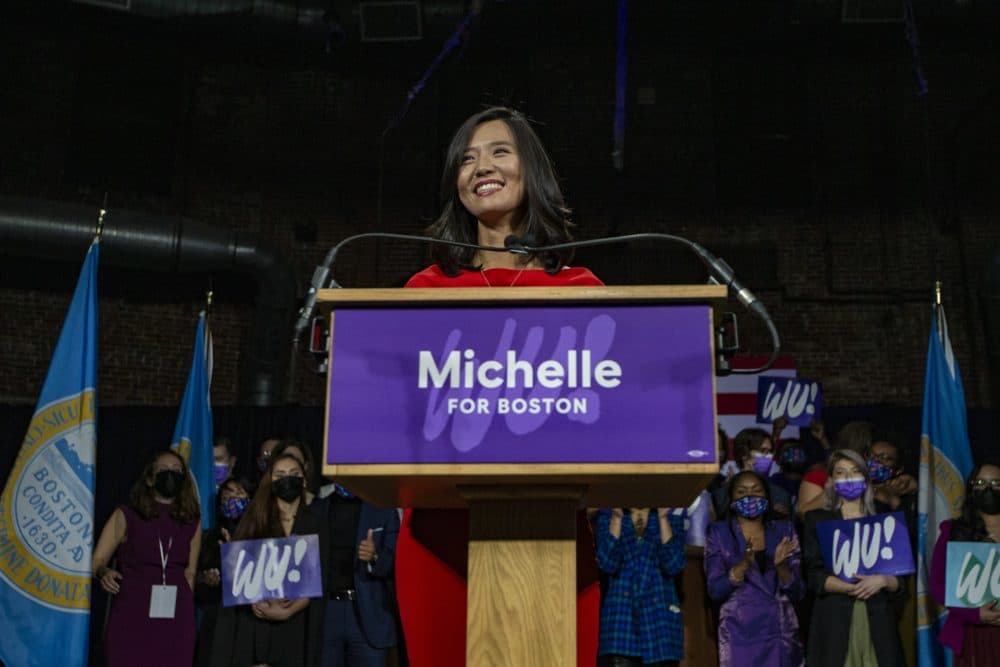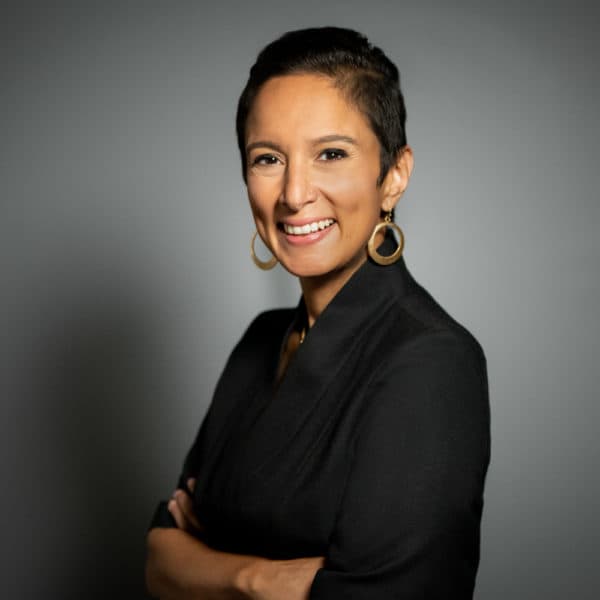Advertisement
What it means to have an Asian American mayor

Michelle Wu is the first woman and the first person of color to win a Boston mayoral election. In Tuesday's vote, Wu defeated City Councilor Annissa Essaibi George by a wide margin.
Paul Watanabe, professor of political science and director of the Institute for Asian American Studies at UMass Boston, joined WBUR's Morning Edition to discuss the historic victory.
Interview Highlights
What do you think it says that Boston elected an Asian American candidate? Or do you think it's more about her being who she was as a candidate and less about her identity?
"I don't think you can separate from her, her identity. ... [As] an Asian American candidate, I don't think people want to play the game of saying that the fact that she's not white is not critical. It is critical to her. It's a part of her identity. And it's part of her appeal, I think. But yes, it's an important moment for Asian Americans, of course. In this nation, we have seldom elected Asian Americans to a critical office like this. I can think of only one other woman in the United States prior to this who's been a mayor of a major city in Oakland, California. And so I think it's a significant point for Asian Americans. And I think we should celebrate it and not pretend that it's not an important milestone."
"I do think there's been a big shift in the city's culture and I think there's been a bit of a changing of the guard in terms of who we think of in terms of the leadership of the city of Boston."
Does this mean that there's been a shift in the city's culture?
"I do think there's been a big shift in the city's culture and I think there's been a bit of a changing of the guard in terms of who we think of in terms of the leadership of the city of Boston. I think of what Malia Lazu, who's an African-American and Latina activist in the city of Boston, said the other day ... that maybe we can get beyond Boston thinking in terms of bussing and the Kennedys. And that second part, I think that we look to people like the Kennedys, perhaps, or even Mayor Menino or Kevin White or even Marty Walsh as sort of the leaders in the city of Boston. But I think that that's changed. I think now the leaders are going to be names like Ayanna Pressley, who's a real leader and a path breaker. Elizabeth Warren, a path breaker herself. And Michelle Wu is going to be added to that. So I think there is going to be this representation there, a changing of the guard in terms of leadership of the city and the voices that people hear when they hear about what Boston represents. And that's a new and, I think in many cases for many people, a very refreshing change for the city of Boston."
Advertisement
What do you think the challenges are that she'll face most immediately?
"Part of it is high expectations. That is, a lot of people are putting a lot into the fact that she is the first woman and she's the first person of color. And I think a lot of people are going to create high expectations. Traditionally that's has been the case, and these high expectations are one that I think she's going to relish and people that support her are going to want to take on. But the notion that she can solve all the historic problems in the city of Boston in 100 days, or in one term, I think are perhaps unrealistic."
"...to have an opportunity, finally, to talk about somebody who looks like me and has experience a bit like me, it's kind of overwhelming."
You've spent a lot of your career researching to help advance Asian Americans. You've talked about some of the racism you faced growing up as a Japanese-American. So does this bring up feelings for you to see an Asian American woman elected as mayor of Boston?
"Yeah, I must say it's kind of different for me, I've been in this business for over 40 years analyzing people here in the city of Boston and nationwide and here to have an opportunity, finally, to talk about somebody who looks like me and has experience a bit like me, it's kind of overwhelming. ... I think about my grandkids and they're about the same age just as Michelle Wu's kids and the different world that they live in. Those are grandkids who think, for example, that that they have a vice president who's Asian American and they now have a mayor of the city of Boston who's Asian American. For them, it may not seem all that different and all that new. They're the age that they think the Red Sox win baseball championships every other year and that the Patriots always win Super Bowls. And for those of us with a longer experience, we understand how new and important that is."
This segment aired on November 3, 2021.
